Here, we discuss the changes and how setting up a Tronc scheme could help hospitality operators and restaurants distribute tips and gratuity more effectively.
New tipping rules: The background
The new rules were first consulted on in 2016 after a series of negative media coverage on malpractice and the unfair distribution of tips. Research identified that many businesses adding a discretionary service charge onto customer’s bills were keeping part or all of these service charges, instead of passing them onto staff.
In September 2021, the government published plans that will require all tips and service charges to go to staff, along with several further measures.
While cash tips are already protected by law, this new legislation will go further to cover card payments which have become increasingly prevalent in recent times. Businesses who receive tips by card currently have the choice of whether to keep it or pass it on to workers.
How are tips taxed?
HMRC classes cash tips as taxable income and if your staff don’t fill out a tax return then HMRC will estimate the tips based on information from your staff or your business. They will then provide a tax code so they can collect tax through Pay As You Earn (PAYE).
Tips already cannot be used to count towards minimum wage pay and this has been the case since 2009, when a previous voluntary Code of Practice was published to improve the information available concerning the treatment of tipping payments and increase transparency in this area.
What will be included in the new tipping legislation?
The new legislation is expected to include the following:
- Employers will be required to pass on tips to workers without any deductions, including admin charges, other than those required by tax law.
- Employers will be required to have a written policy on tips and keep a record of how tips are dealt with.
- There will also be a new statutory Code of Practice on Tipping for employers in order to demonstrate fairness and transparency, which will replace the existing voluntary code. Employers will be able to distribute tips via a Tronc (see further details on Troncs below), and a tip must be dealt with no later than the end of the month following the month in which it was paid by the customer.
- New rights will be introduced for workers to request information about an employer’s tipping record. This will enable employees to bring credible claims to an Employment Tribunal and employers can be forced to compensate workers, often in addition to fines.
When will the new tipping laws come in?
These changes will be included in the Employment Bill. This Bill hasn’t yet worked its way through Parliament but is expected to be brought forward soon, meaning that the new law could be in place in late 2022.
We expect further updates from the Government soon and will continue to update our clients with regards to the scheduled implementation of these new rules, so that they can ensure that they are ready.
What does this mean for businesses who receive tips?
Under the new legislation, if an employer breaks the rules they could be taken to an employment tribunal, potentially leading to compensation and fines.
Therefore, it is important that hospitality operators are aware of these changes and ready to comply when the new laws are introduced.
Should I now set up a Tronc?
The move to more regulated tipping practices may increase the popularity of Tronc schemes, which is an area that our team can assist clients to set up and run.
A Tronc is a special pay arrangement used to distribute tips (by cash or card), gratuities and service charges. The tronc effectively holds the tips from the customer in a common fund to be distributed to staff.
The real benefit of Tronc schemes to your business is that you can increase your employees’ take-home pay at no added cost to your business and provide greater incentive and reward for providing a high quality customer service.
That is because, subject to meeting certain conditions, payments made by the Tronc are free of National Insurance Contributions, saving you and your staff a combined total of almost 26% in comparison to distributing the funds outside of a tronc scheme.
For example, a business turning over £500,000 per annum could save over £8,000 per year. An employee receiving £100 per week through a compliant tronc scheme would receive additional net pay of over £600 annually.
 “Putting in place a well-structured Tronc scheme will ensure that your customers know where their tips are going, and will help you build a more motivated team focused on delivering a high quality service”, says Leighton Bower, Partner.
“Putting in place a well-structured Tronc scheme will ensure that your customers know where their tips are going, and will help you build a more motivated team focused on delivering a high quality service”, says Leighton Bower, Partner.
Tronc schemes: What to consider?
There are however, several areas to consider when setting up a Tronc scheme including:
- Who will be your Troncmaster? This is the person who will administer your scheme, potentially run your payroll and report the information to HMRC. For example, it could be a member of staff or your accountant.
- How will you ensure the scheme is fair and transparent? What rules and written policies will be put in place and how will it be advertised to your customers, including any service charge added, the level of admin charge and person responsible for administering the scheme. Also, information should be provided to staff, such as how is their share calculated, how tips paid on card are converted to cash and how they can get further information.
Hospitality accountants
We will publish more on this as soon as we know when the new tipping laws are due to come in.
At Rouse, we specialise in supporting hospitality and restaurant clients with a full range of accounting, tax, payroll and advisory services. We can also provide specialist advice for setting up and running Tronc schemes. Contact us if you would like to discuss how we can assist your business.

Award-winning chartered accountants offering tax, audit and advisory services.


